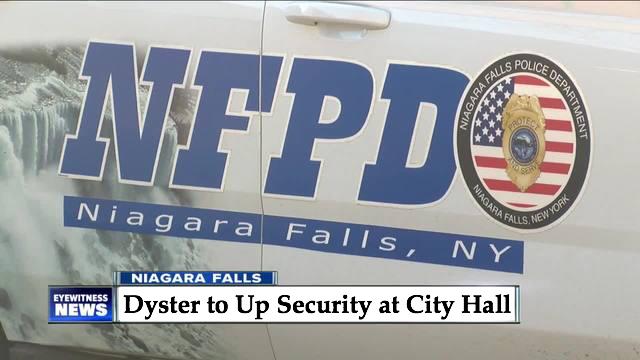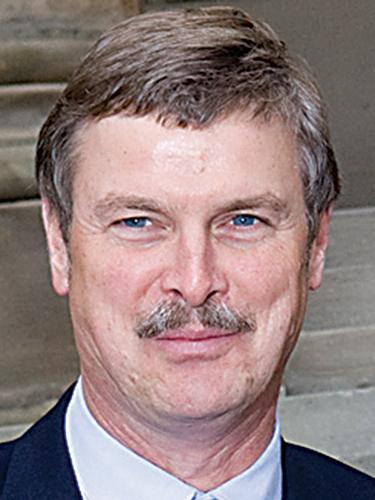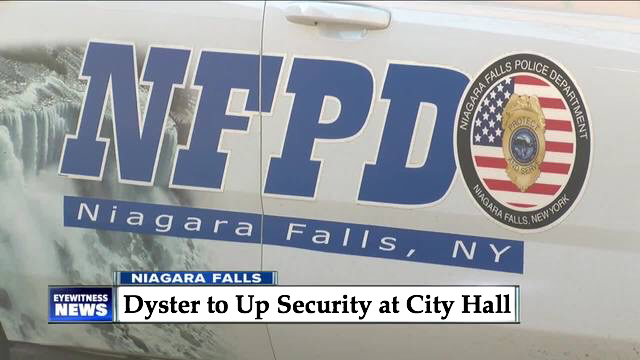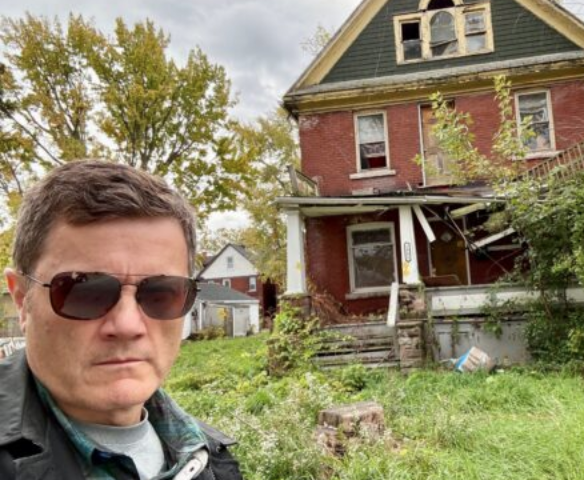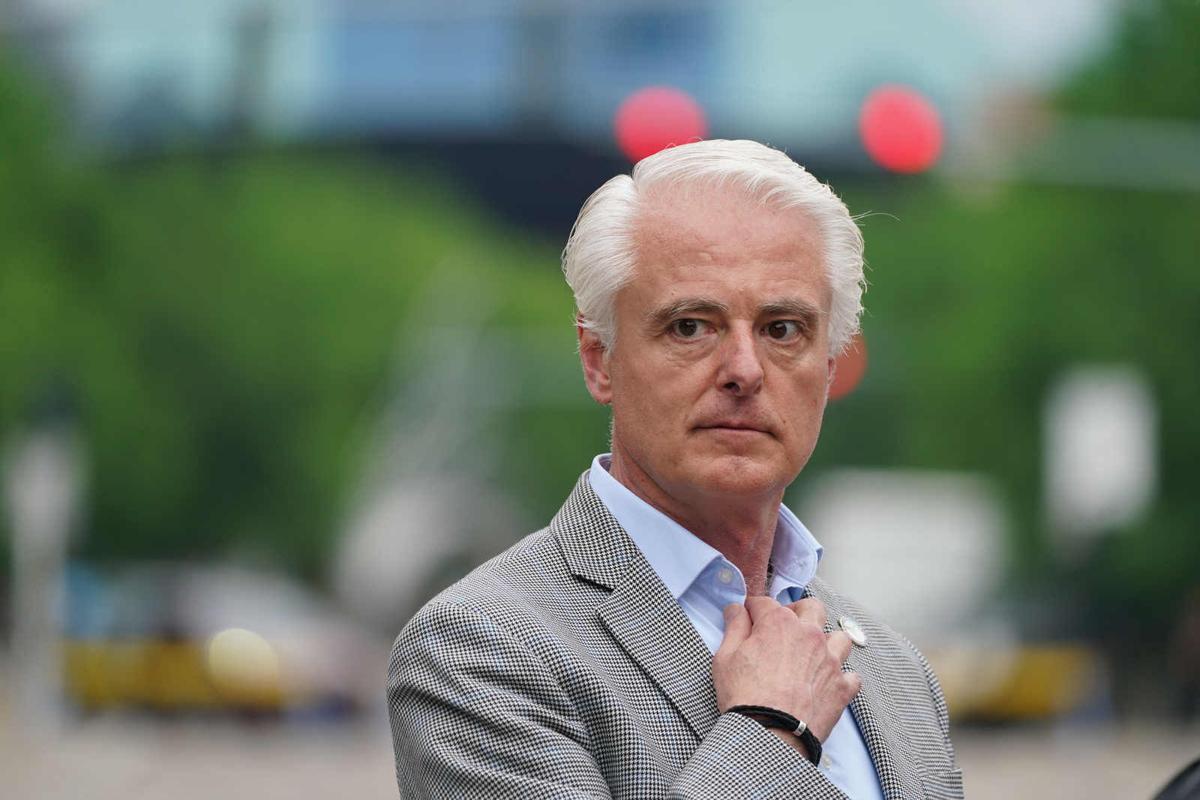Please click the link below to subscribe to a FREE PDF version of each print edition of the Niagara Reporter
http://eepurl.com/dnsYM9
By: Frank Parlato
A brave new world of security is planned by Niagara Falls Mayor Paul Dyster for the city hall he now occupies.
His plan includes:
Visitors to Niagara Falls City Hall will have to enter the building through the ground floor entrances. The basement entrance will be locked.
For some that means a difficult climb up stairs. And a long walk from the parking lot. But it is in the interest of safety, the mayor has indicated.
The new plan requires visitors, once inside, to present themselves to a Niagara Falls police officer who will ask for Photo I.D. and the purpose for visiting.
According to published reports, the changes were made because of “recent displays of violence around the world.”
The return of a police officer is a large part of the security plan.
A few years ago, Mayor Dyster became the first mayor in the city’s history known to have stationed a police officer on duty at city hall.
For the past 120 years, prior to Dyster, there was no known problem with security at city hall – even when the city had a population of more than double its present, estimated 46,000 people.
Dyster stationed his officer in the lobby not far from his office. However, the officer did not require ID or ask where people were going.
That’s changing now.
Indeed, people could enter from the basement door – convenient to the parking lot – and walk up the stairs or ride the elevator to the second or third floors and avoid the first-floor policeman altogether.
No incidents were reported.
After a while, the city stopped deploying a police officer at city hall and in his absence, again there were no incidents of violence reported.
But with concerns of violence in Belfast, ISIS, Turkey, Afghanistan, Somalia and elsewhere – Dyster decided to beef up security. Since he became mayor, Niagara Falls has risen to achieve the highest crime rate in New York State.
At city hall, there are already security cameras and panic buttons in and around Dyster’s offices. But Dyster wants to invest additional taxpayer money to upgrade the present system with new, top of the line, high definition- wide angle security cameras, more panic buttons and an array of spyware and modern technology to ensure his safety.
Dyster will soon be proposing this upgrade to the city council for approval. The cost – when it is all done – which may be in phases – may be upwards of $100,000.
While he may be unable to prevent the rise in crime for the rest of the city, he can at least insure his personal safety. If all goes well, the security at City Hall will be as great or greater than the courthouse. It is not known if metal detectors will be in the first phase of Dyster’s security plans.

